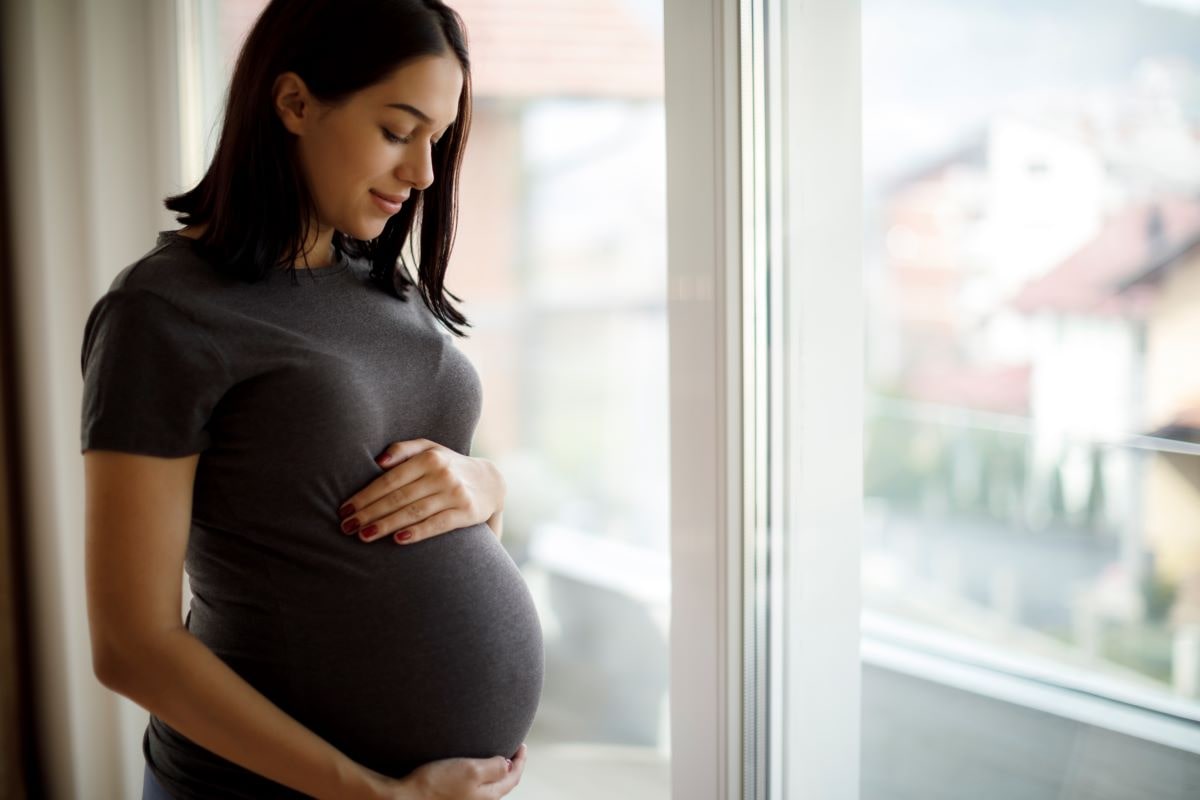
- March 17, 2021
- Comments: 0
- Posted by: Dr. Anushri Shah

It is normal to gain weight during pregnancy. Weight management is the key to a healthy pregnancy. But a woman who is overweight before pregnancy, then this extra gaining of weight at the time of pregnancy may result in a difficult pregnancy. It is tremendously important to maintain a healthy body weight. If your BMI is 30 or more and you are pregnant then losing that unhealthy weight at the time of pregnancy may show good results and can be beneficial for you. It is very much possible to lose weight while you are in your early stage of pregnancy, hence do not fear.
Losing weight while pregnant- is it safe?
Typically, pregnant women are not encouraged to lose their weight or even follow a diet that promotes weight loss during this period. However due to morning sickness during the first trimester of pregnancy, it is normal for women to lose weight. But usually, she would start gaining weight in the final two trimesters.
The reasons for weight gain at the time of pregnancy
When in your first trimester you will not gain much of weight, credit- morning sickness and loss of appetite. On the other hand, your baby will be too small. You will start to gain weight in the second trimester as at this time your baby will begin to grow in size. By the time you reach your final trimester (third trimester), your baby will continue to grow in size but your weight gain should become stable as your abdomen may get cramped, and eating food can get tough. Moreover, at the time of pregnancy, you tend to eat for yourself and for your babies hence those extra calories contribute to your gaining of weight.
Weight gain chart: how much a woman should gain weight during her pregnancy?
Depending on each woman the recommended gaining of weight during various phases of a pregnancy will vary. Below mentioned is the chart for you to understand how much weight you should gain throughout your nine months of pregnancy. This chart will also help you in your weight management during pregnancy.
BMI pre- pregnancy | Category | Suggested weight gain (in kgs) |
18.5-24.9 | Normal | 11-16 |
< 18.5 | Underweight | 13-18 |
25-29.9 | Overweight | 7-11 |
>30 | Obese | 5-9 |
Please note that the above-mentioned weight gain chart is suggested for a single fetus. If you are carrying twins or more then it is recommended that you gain weight between 16.6 kgs and 24.6 kgs. But it is always suggested to consult your treating gynecologist regarding the ideal weight gain.
Division of weight at the time of pregnancy
The amount of weight you gained while you are pregnant gets evenly divided. Take a look at the breakdown of the weight you gain during the period of pregnancy:
- Your baby will weigh about 3 to 3.5 kgs by the time your pregnancy gets over
- The placenta and amniotic fluid will make up around 1.5 kgs
- Your uterus will continue to grow in size as your pregnancy progresses and your breasts will increase in size. The enlarged uterus and engorged breasts may mean an extra 2 kgs
- Blood and bodily fluids may carry the weight up to 4 kgs
- Fat and other nutrients will comprise about 3 kgs
A weight-loss diet: Yes or No
It is not recommended for a woman who is pregnant to opt for a crash diet or a diet that will decrease their intake of calorie. As a result of a weight loss diet, your baby may suffer from mental retardation or neurological and respiratory problems due to the deficiency of adequate nutrients and micronutrients. Moreover, your child may suffer from obesity in the later phase of their life due to a weight loss diet at the time of pregnancy.
It is advised to consult with your treating gynaecologist regarding any dietary modifications (if needed).
Lose weight at the time of pregnancy: a guide
You may face several health issues and complications at the time of your delivery if you are overweight (obese) during pregnancy. On the other hand shedding weight rapidly may also prove to be dangerous for your health and the health of your baby as well. This is why you should be aware of a safe way of losing weight during pregnancy without causing any harm to yourself or the baby. Here in Divine Mother, you will get a complete guide on how to lose weight at the time of pregnancy.
-
Find out the amount of weight you require gaining
Even you are obese (over-weight); still, you will gain some kilos during your pregnancy period. Calculate your existing weight, estimate how much weight you require gaining. Aim at staying within the recommended limit. Restrict your weight watching to one time in a week as it is normal that your weight will fluctuate and checking your weight daily will only direct to unnecessary anxiety and stress.
-
Check on your calorie intake
Calculate the amount of calorie you are in-taking daily. Your intake of the calorie should be adequate for you and your baby to stay healthy and fit throughout your pregnancy. It is advised to get a minimum of 1700 calories daily (consult your gynaecologist). By maintaining a track of what you are eating daily will help you keep a check on your daily calorie intake and will also enable you to known whether your calorie intake is within the normal limit.
-
Daily work out a plan
A pregnant woman can opt for moderate exercises during her pregnancy period. This will help in keeping the weight gain in control and will also give relief from the pain and cramps during pregnancy. Lightweight exercises, yoga, and physical activities like walking (for 10-15 mins a day) can be done by a woman during her pregnancy period. Take an expert’s advice before doing any exercise.
-
Staying hydrated
It is recommended to stay hydrated during your pregnancy period. Drinking 1 to 2 liters of water every day can make you feel filled and prevent you from eating too much.
-
Eating healthy snacks
Eating junk, fried, oily food should be avoided during pregnancy. Instead, opt for fresh fruits and vegetables. Eat whole-grain cereals and bread with dairy products that are low in fat content. Add in your diet foods like spinach, strawberries, ad beans that contain folate. It is suggested to eat a breakfast that is healthy and does not skip breakfast. Eat foods like fruits, vegetables, whole grains that are rich in fibre and will help in the process of digestion. This will also help in preventing constipation and the formation of gas during your pregnancy period.
-
Go for frequent smaller meals
It is advised to opt for smaller meals throughout the day. This will help you in keeping a check on your calorie intake. Taking frequent smaller meals will also prevent you from indigestion and heartburn (which are a common phenomenon during pregnancy).
-
Do not forget to take your prenatal vitamins
Do not skip your prenatal vitamins. Be sure to take the vitamins daily as advised by your treating doctor. This will help you in getting all the necessary nutrients that are needed by you and your baby. Taking prenatal vitamins in the recommended dose will also help you to meet your required nutrition level and will thus prevent you from eating in excess quantity.
A word of concern
Your weight can affect you and your baby’s health considerably. Maintaining a healthy weight before pregnancy is perfect, but if you are overweight (obese) then you need not chop down your intake of calorie radically or work out too much. It is always recommended to take the advice of your treating gynaecologist before deciding any modifications. Instead of shedding weight, emphasis should be given more to proper weight management before or at the time of pregnancy. If you have to lose weight safely enroll in our online pregnancy classes for healthy means of losing weight which should not affect your and your baby’s health negatively.

